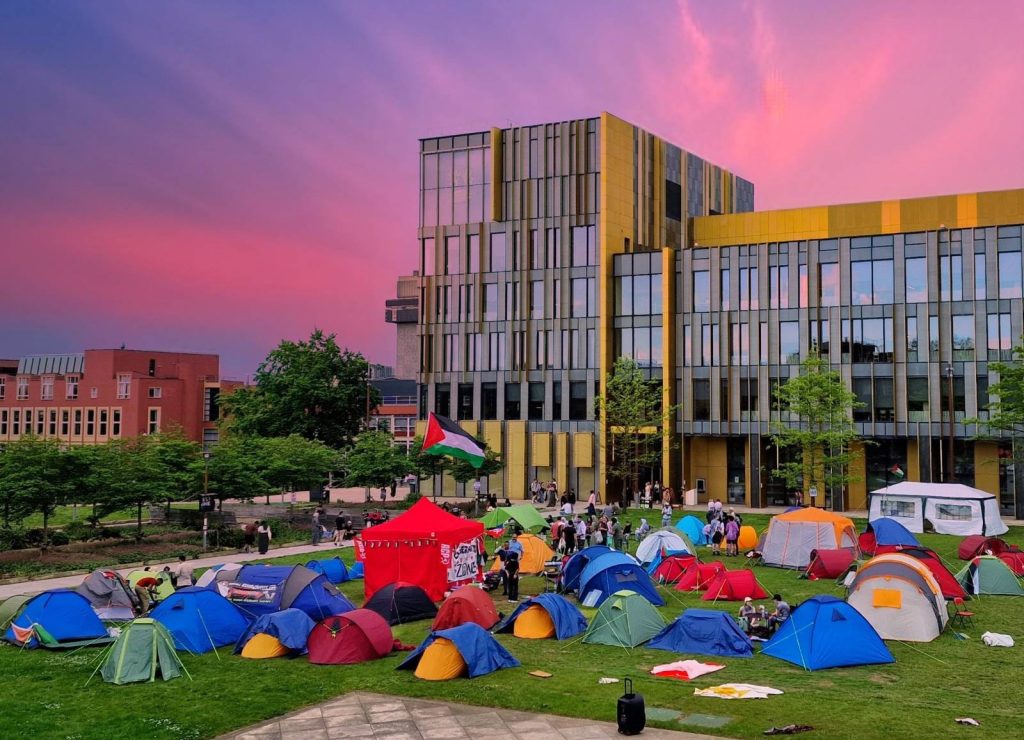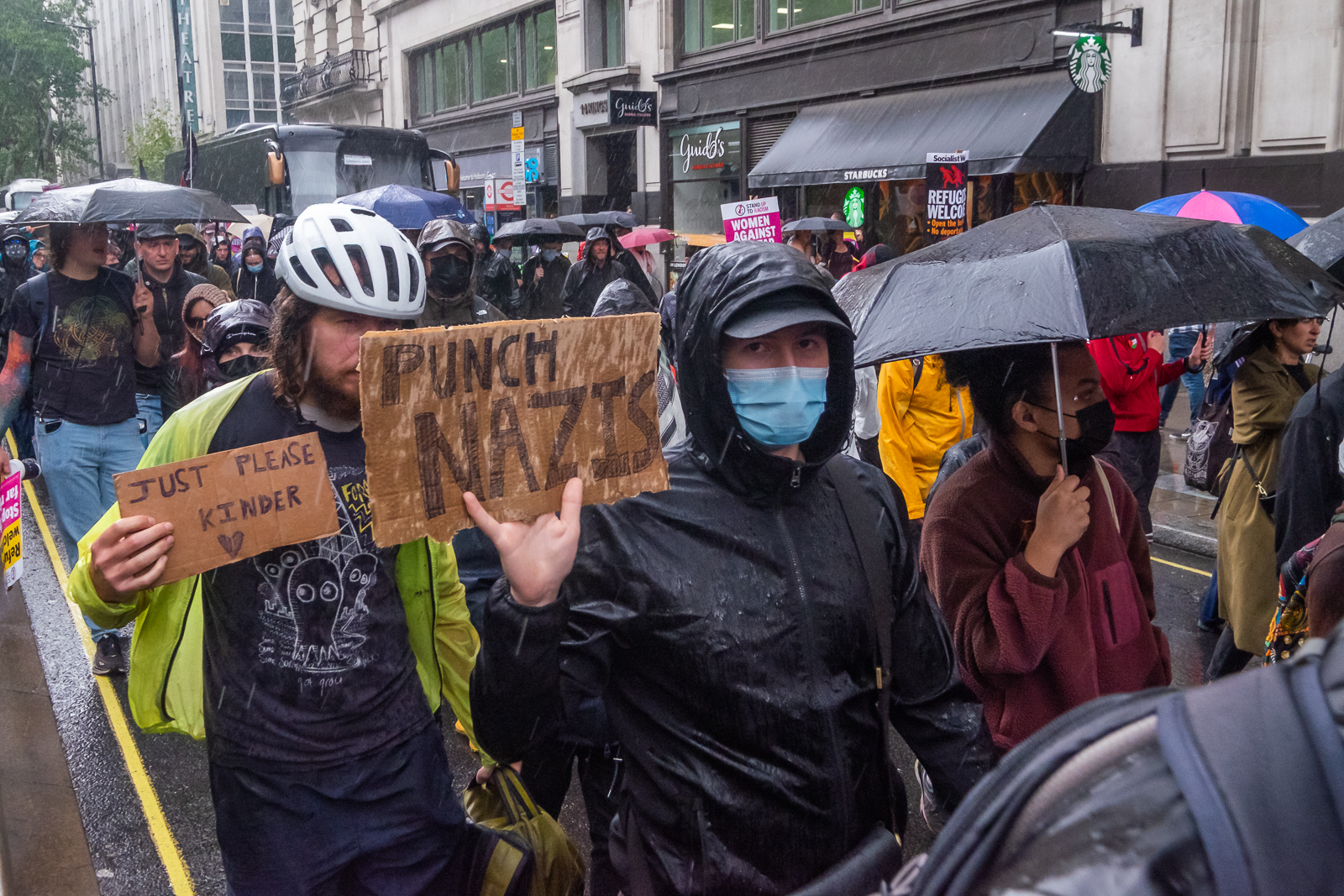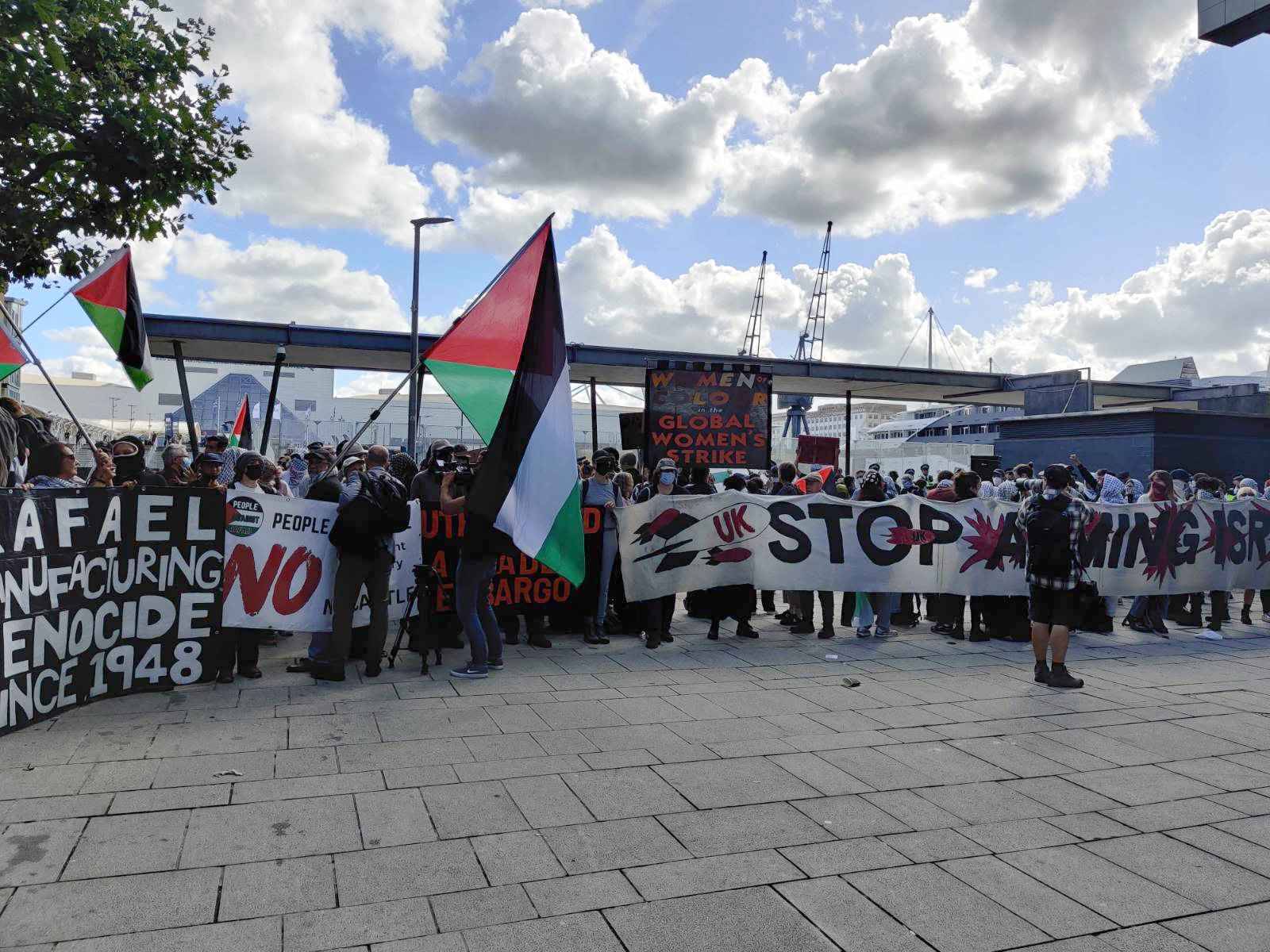In our third article from Palestine solidarity campers, the the Student and Staff Encampment Coalition write about their two months at the Univerity of Birmingham campus.
Other articles in this series:
On the 11th of July, at 5am we were evicted from our encampment on the University of Birmingham (UoB) campus. We were made to leave, under threat of forcible removal from a pack of bailiffs who had arrived, outnumbering the student protesters who had been sleeping. Our university was one among many in the UK, and internationally, that felt it was acceptable to forcibly repress the protests of students and staff, foregoing any sense of duty of care. The shadow this casts on the pretence that universities are bastions of freedom of speech will be long-lasting.
We camped for 64 days. 40 days on from our eviction at the time of writing, and 104 days since we established our camp, we are reflecting on our part in the movement. A movement that is ongoing.
Our demands are similar to the other student encampments globally. We demand that UoB divests from all companies complicit in the ongoing genocide in Gaza, as well as the human rights abuses perpetrated by the Israeli state across Palestine, including the West Bank.
We call for an increase in the transparency around our university’s finances, asking in particular that the books be opened to members of the student and staff unions. We want to see clarity around the university’s finances, for them to become genuinely accessible to the student and staff community.
Furthermore, we demand an increase in protections for freedom of speech on campus. Sadly, since establishing our camp, we have continued to see pro-Palestinian student protesters threatened with disciplinary action, and, of course, we were taken to court. The repressive measures the university has in place must be altered. For example, in order to be allowed to protest on campus, a lengthy approval process must be undertaken. This means that rallies are not permitted to be held as and when they are called for, for instance, in the immediacy of Israel’s incursion into Rafah.
In pursuit of this, our camp became an unavoidable visual, signifying that UoB students and staff would not stand by as our university remained complicit in crimes against humanity. The camp became the starting point for rallies across campus. We were present for open days, giving prospective students insight into the university they would be joining. We were present for graduations, even after our camp no longer stood. We dropped banners. We held vigils. We had die-ins. We recognised the privilege of having a campus on which to protest this injustice, when in Gaza there are no universities left. It was our duty to stand against this injustice, and this duty remains and so we will not and cannot rest.
In the face of these protests, our university committed itself to a policy of dishonesty, consistently avoiding dialogue with its students whilst maintaining a pretence of seeking discussion. They claimed, as they took us to court, that this had been a last resort, and yet they had never once met with us before seeking this court order. In fact the vice chancellor, Adam Tickell, had actually insisted he would never meet with us, choosing to ignore the outrage and distress his university’s complicity in genocide and human rights abuses was causing to his student body. It was clear to us, and the wider community, that UoB’s management was more interested in taking its students to court than speaking to them.
It is not the group of encampment protesters alone who feel strongly about this issue. We have the support of both the staff unions on campus, BUCU and Unison. In addition, a letter of support, which staff could sign in an individual capacity, received close to 300 signatures. More than 60 student societies publicly came out in support of the encampment and its demands. This makes university management’s failure to engage with us even more egregious, given the clear and mainstream desire to see action.
What was most uplifting about the encampment was that this support was not on paper alone. Whilst the university sought to demonise and undermine us and our movement, deliberately misrepresenting our actions, attemping to frame us as intimidatory, we felt the truth of the welcoming community space we had created. Staff members, students and people from the community gathered to show solidarity with the Palestinian people. Many of the student societies which had come out in support of our protest, hosted events, like poetry workshops. Many staff members came to host teach outs, sharing their knowledge and its power with the movement. Community members too hosted and attended events. We had local individuals and local businesses bringing us food, we even had guitars bought for us. It was a space of protest and rightful outrage, but also one of hope and solidarity.
This is the legacy we are confident we will continue. We know that whilst the camp is gone the support of our community is not. We will keep protesting, we will keep growing in numbers, and we will only get louder. Our demands grow more urgent by the day, and our university will have to listen to us.
Pic: The Birmingham camp, courtesy of the authors.








